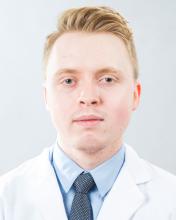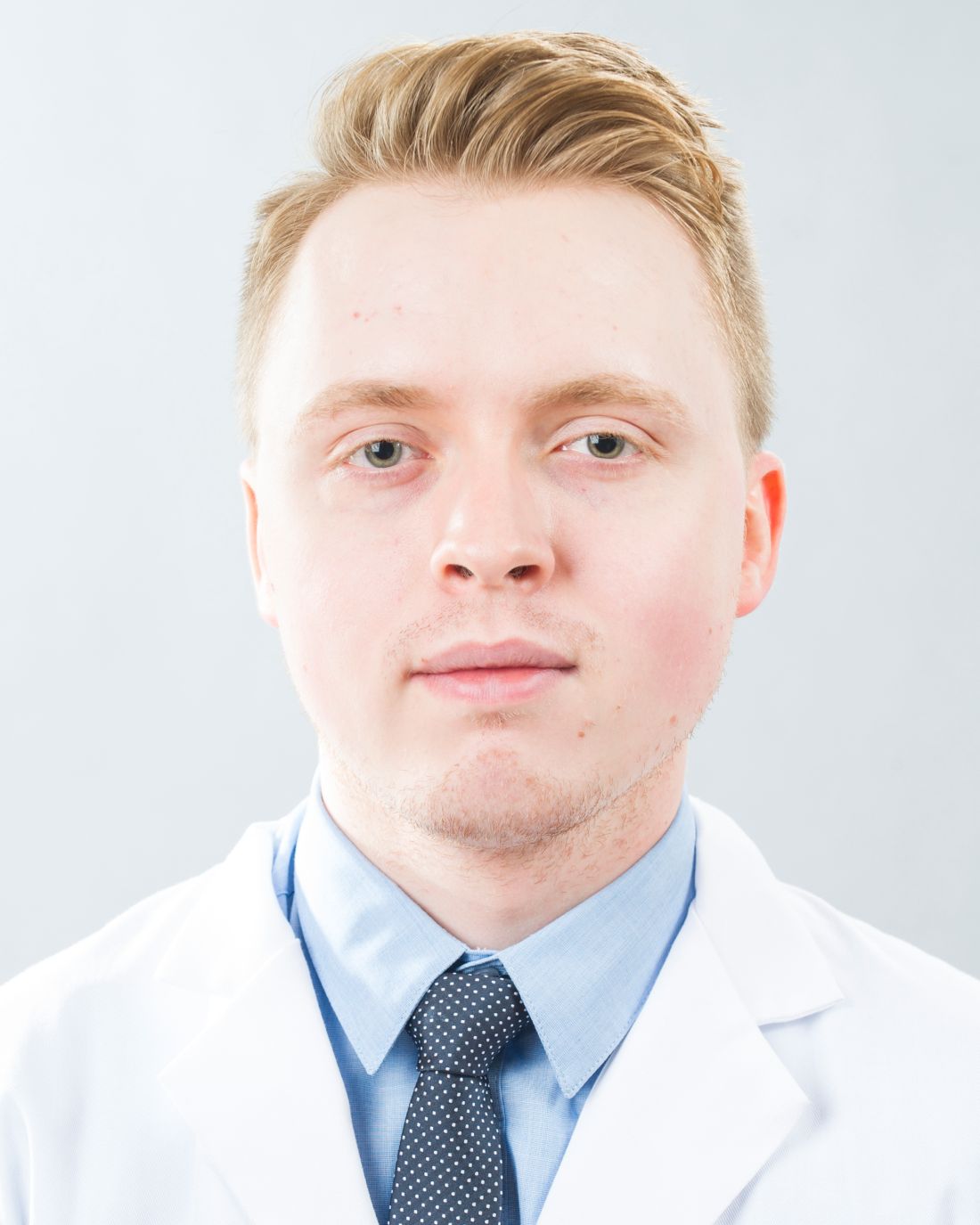User login
Editor’s Note: The Society of Hospital Medicine’s (SHM’s) Physician in Training Committee launched a scholarship program in 2015 for medical students to help transform healthcare and revolutionize patient care. The program has been expanded for the 2017-18 year, offering two options for students to receive funding and engage in scholarly work during their 1st, 2nd, and 3rd years of medical school. As a part of the program, recipients are required to write about their experience on a biweekly basis.
Quality improvement in clinical practice has recently become very important to me. What use is clinical knowledge if it cannot be appropriately used to benefit patients in a clinical setting?
Throughout my 1st year at medical school, my interest in communication continued to grow. In one of my classes, Essentials of Clinical Reasoning, we were taught to continually consider how to effectively translate our thought processes and potential diagnoses to our patients. To begin crafting effective HPIs, we created complete, whole histories from visit to visit.
At this time, I discovered the subfield of research concerning strategies surrounding handoffs as transition of care changes, with patients often suffering due to breakdowns in communication.
With my interest in handoffs, and with direction from the Society of Hospital Medicine, I reached out to Dr. Vineet Arora, a leading academic hospitalist at the University of Chicago with a highly impressive history of research concerning quality of care toward hospitalized adults. Under the supervision of Dr. Arora and Dr. Juan Rojas, a pulmonary critical care fellow, I will help investigate whether receiving floor physicians and intensive care unit physicians possess similar shared mental models in regards to the most pertinent point of care – when patients are transferred out of the ICU.
We seek to identify if there are any associations present between readmission from the general floor, the providers’ rated likelihood of the patient returning to the ICU, and whether floor and ICU physicians are on the same page concerning condition management while on the floor.
I believe the experience I gain at the University of Chicago Medical Center will be invaluable to my future as a physician. I am very excited to get to know the various clinicians at UChicago, to gain clinical experience by observing the management of the general ward, and to identify how effective physicians communicate.
Above all, I hope to use any knowledge I gain this summer to become an efficient, knowledgeable, and compassionate physician capable of providing the highest quality of care to my future patients.
Anton Garazha is a medical student at Chicago Medical School at Rosalind Franklin University in North Chicago, Ill. He received his B.S. in Biology from Loyola University in Chicago in 2015 and his Master of Biomedical Science from Rosalind Franklin University in 2016. Anton is very interested in community outreach and quality improvement, and in his spare time tutors students in science-based subjects.
Editor’s Note: The Society of Hospital Medicine’s (SHM’s) Physician in Training Committee launched a scholarship program in 2015 for medical students to help transform healthcare and revolutionize patient care. The program has been expanded for the 2017-18 year, offering two options for students to receive funding and engage in scholarly work during their 1st, 2nd, and 3rd years of medical school. As a part of the program, recipients are required to write about their experience on a biweekly basis.
Quality improvement in clinical practice has recently become very important to me. What use is clinical knowledge if it cannot be appropriately used to benefit patients in a clinical setting?
Throughout my 1st year at medical school, my interest in communication continued to grow. In one of my classes, Essentials of Clinical Reasoning, we were taught to continually consider how to effectively translate our thought processes and potential diagnoses to our patients. To begin crafting effective HPIs, we created complete, whole histories from visit to visit.
At this time, I discovered the subfield of research concerning strategies surrounding handoffs as transition of care changes, with patients often suffering due to breakdowns in communication.
With my interest in handoffs, and with direction from the Society of Hospital Medicine, I reached out to Dr. Vineet Arora, a leading academic hospitalist at the University of Chicago with a highly impressive history of research concerning quality of care toward hospitalized adults. Under the supervision of Dr. Arora and Dr. Juan Rojas, a pulmonary critical care fellow, I will help investigate whether receiving floor physicians and intensive care unit physicians possess similar shared mental models in regards to the most pertinent point of care – when patients are transferred out of the ICU.
We seek to identify if there are any associations present between readmission from the general floor, the providers’ rated likelihood of the patient returning to the ICU, and whether floor and ICU physicians are on the same page concerning condition management while on the floor.
I believe the experience I gain at the University of Chicago Medical Center will be invaluable to my future as a physician. I am very excited to get to know the various clinicians at UChicago, to gain clinical experience by observing the management of the general ward, and to identify how effective physicians communicate.
Above all, I hope to use any knowledge I gain this summer to become an efficient, knowledgeable, and compassionate physician capable of providing the highest quality of care to my future patients.
Anton Garazha is a medical student at Chicago Medical School at Rosalind Franklin University in North Chicago, Ill. He received his B.S. in Biology from Loyola University in Chicago in 2015 and his Master of Biomedical Science from Rosalind Franklin University in 2016. Anton is very interested in community outreach and quality improvement, and in his spare time tutors students in science-based subjects.
Editor’s Note: The Society of Hospital Medicine’s (SHM’s) Physician in Training Committee launched a scholarship program in 2015 for medical students to help transform healthcare and revolutionize patient care. The program has been expanded for the 2017-18 year, offering two options for students to receive funding and engage in scholarly work during their 1st, 2nd, and 3rd years of medical school. As a part of the program, recipients are required to write about their experience on a biweekly basis.
Quality improvement in clinical practice has recently become very important to me. What use is clinical knowledge if it cannot be appropriately used to benefit patients in a clinical setting?
Throughout my 1st year at medical school, my interest in communication continued to grow. In one of my classes, Essentials of Clinical Reasoning, we were taught to continually consider how to effectively translate our thought processes and potential diagnoses to our patients. To begin crafting effective HPIs, we created complete, whole histories from visit to visit.
At this time, I discovered the subfield of research concerning strategies surrounding handoffs as transition of care changes, with patients often suffering due to breakdowns in communication.
With my interest in handoffs, and with direction from the Society of Hospital Medicine, I reached out to Dr. Vineet Arora, a leading academic hospitalist at the University of Chicago with a highly impressive history of research concerning quality of care toward hospitalized adults. Under the supervision of Dr. Arora and Dr. Juan Rojas, a pulmonary critical care fellow, I will help investigate whether receiving floor physicians and intensive care unit physicians possess similar shared mental models in regards to the most pertinent point of care – when patients are transferred out of the ICU.
We seek to identify if there are any associations present between readmission from the general floor, the providers’ rated likelihood of the patient returning to the ICU, and whether floor and ICU physicians are on the same page concerning condition management while on the floor.
I believe the experience I gain at the University of Chicago Medical Center will be invaluable to my future as a physician. I am very excited to get to know the various clinicians at UChicago, to gain clinical experience by observing the management of the general ward, and to identify how effective physicians communicate.
Above all, I hope to use any knowledge I gain this summer to become an efficient, knowledgeable, and compassionate physician capable of providing the highest quality of care to my future patients.
Anton Garazha is a medical student at Chicago Medical School at Rosalind Franklin University in North Chicago, Ill. He received his B.S. in Biology from Loyola University in Chicago in 2015 and his Master of Biomedical Science from Rosalind Franklin University in 2016. Anton is very interested in community outreach and quality improvement, and in his spare time tutors students in science-based subjects.

